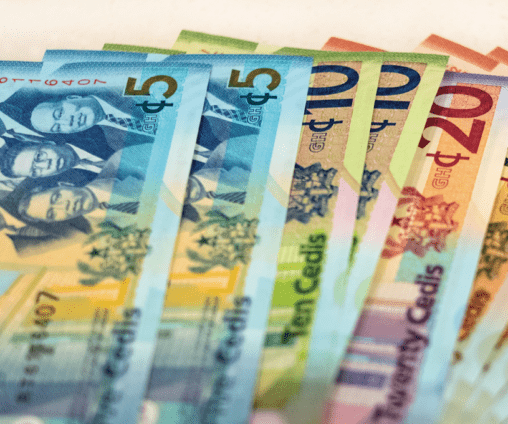By Joshua Worlasi AMLANU & Ebenezer Chike Adjei NJOKU
Amid heightened corporate demand and persistent foreign exchange (FX) pressure, the cedi continues to grapple against major trading currencies, reflecting mounting concerns over inflationary pressures and liquidity dynamics.
This is despite the over US$106.10million injection into the FX market through the Bank of Ghana’s (BoG) spot market operations and bulk oil distribution companies (BDCs).
On the interbank market, the cedi began the year trading at a mid-rate of GH¢11.88 to US$1. By the end of last week, the local unit had depreciated to GH¢ 12.75 to the American greenback – a 1.3 percent dip from the previous week.
This comes as last week, the Treasury payment of coupon obligations injected approximately GH¢5.1billion into the market.
According to analysts at Databank Research, this move initially buoyed local liquidity, but failed to mitigate the surging FX demand.
“We believe the improved liquidity of the local unit on the market supported GH¢ funding toward FX demand,” Databank Research stated in a note.
“Additionally, we believe investors are pricing in uncertainties regarding rising inflationary pressures,” it continued.
Despite efforts by the central bank to stabilise the currency, the cedi faltered against major trading currencies.
“Despite the central bank selling about US$18.5million on the spot market, it could not keep the cedi afloat,” Databank Research stated.
Corporate demand for foreign currency further exacerbated the cedi’s depreciation. “Heightened corporate demand and cedi-funded FX demand emanating from improved GH¢ liquidity contributed to the cedi’s weakening,” the note continued.
In addition to the US dollar, the cedi also faced losses against the British Pound (GBP) and Euro (EUR), shedding 1.10 percent and 1.47 percent, respectively, on the retail market.
The market expected a firmer cedi following the significant boost with forex inflows from both the International Monetary Fund (IMF) and the World Bank. Last month, the World Bank approved a US$300million Development Policy Operation for Ghana, marking the initial step in a three-part series.
Also, the disbursement of the second tranche of US$600million following the first review of the US$3 billion, 3-year extended credit facility (ECF) arrangement with the IMF.
This FX injection was expected to result in a substantial FX inflow of about US$1.15billion into the economy, further fortifying the stability of the cedi in the foreseeable future.
Investors and market participants are closely monitoring the evolving situation, with concerns mounting over the sustainability of the cedi’s recent downward trend. As the week progresses, analysts anticipate a continuation of the prevailing narrative, with the cedi poised to face ongoing challenges amid persisting FX demand and inflationary pressures.
In response to these developments, stakeholders are calling for further prudent monetary policies and enhanced measures to address the underlying factors contributing to the cedi’s vulnerability on the international stage.
According to the central bank, the volatilities that characterised the foreign exchange market in January 2023 dissipated and the cedi remained relatively stable throughout the rest of the year.
The stability in the foreign exchange market hinged on improved inflows from the IMF ECF first tranche, the domestic gold purchase programme, remittances and FX purchases from mining and oil companies, amid monetary policy tightening.
These were further supported by the release of COCOBOD loan facility in December 2023.
Excluding the sharp depreciation of 20.6 percent in January, the cedi cumulatively depreciated by 7.2 percent against the US dollar between February and December 2023.










